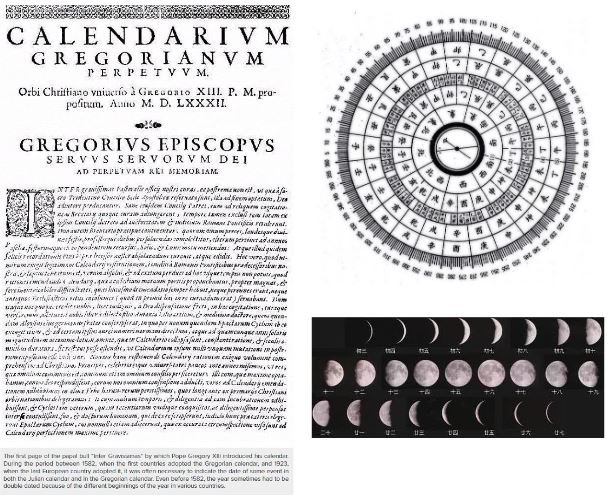Spooky Superstitions or Savvy Deals?
Have you ever wondered if there’s a good time to buy a house besides the typical market fluctuations? Well, in some cultures, there’s a whole month dedicated to… ghosts!
Yes, you read that right. Ghost Month, observed according to the lunar calendar, can be a time of spooky superstitions and surprising opportunities in real estate. Let’s dive in and explore what Ghost Month is all about and how it might impact your property investments or buying or selling journey.
What is Ghost Month?
Ghost Month, also known as the Hungry Ghost Festival or Zhongyuan Festival, is a time steeped in tradition and folklore observed in various cultures throughout East and Southeast Asia. It falls on the seventh month of the Lunar calendar (Zhong Yuan Jie 中元节), which occurs from approximately August 4 to September 2 in the China time zone. The exact dates change from year to year, but typically you’ll find them sometime in August of the Gregorian calendar.

| Photo courtesy of Lumen Learning: Gregorian Calendar | Photo courtesy of Confucius Institute for Scotland, The University of Edinburgh: Chinese calendar |
During Ghost Month, the belief is that the veil between the living world and the spirit world thins. This allows spirits, particularly those of deceased ancestors, to visit the living realm. Traditions during this month focus on:
- Honoring Ancestors: Families prepare elaborate offerings of food, water, and other necessities for their deceased loved ones. These offerings are believed to help guide and appease the spirits.
- Appeasing Wandering Spirits: Some traditions involve offerings and rituals to appease wandering or restless spirits who might bring misfortune.
These beliefs create a unique atmosphere and can even influence the ghost month in the real estate market in certain regions!
The Belief: Open Gates and Wandering Spirits
As we learned, Ghost Month is rooted in the belief that the veil between the living world and the spirit world weakens. Traditionally, this is seen as a time when deceased ancestors and other spirits can cross over more easily.
A. How This Belief Impacts Real Estate Transactions
This belief around open gates and wandering spirits can have a significant impact on real estate transactions in certain cultures, particularly in East and Southeast Asia. Here’s how:
- Avoiding Major Purchases: Some believe buying a property investment during Ghost Month invites unwanted spirits to follow you into your new home. This can lead to a decrease in property viewings and purchases during this period.
- Negotiation Leverage: Sellers eager to close deals before Ghost Month may offer better negotiation terms, benefiting buyers who disregard superstitions.
- Reluctance to Move In: The superstition extends to moving into a new home during Ghost Month, as some believe spirits might already be residing there.
- Renovation Delays: Renovations or construction on a property might be put on hold due to the belief that it can disturb restless evil spirits or disrupt the flow of positive energy.
These are just some of the common superstitions surrounding Ghost Month and real estate. It’s important to note that there’s no scientific evidence to support these beliefs, but they can still have a real impact on buying and selling decisions.
B. Do Superstitions Hold Weight?
It’s important to address the elephant in the room – is there any truth to these superstitions? The short answer is that there’s no scientific evidence to support the idea that buying a property during Ghost Month will bring bad luck. Real estate markets fluctuate for many reasons, and there’s no historical data to suggest a significant downturn during Ghost Month. There’s important information to consider here:
- Lack of Evidence: There’s no scientific basis to support these superstitions. The belief in good or bad luck associated with Ghost Month real estate transactions is purely cultural and based on folklore.
- Historical Data: Studies haven’t shown any significant correlation between buying property during Ghost Month and experiencing misfortune. Real estate markets might see a slight dip in activity due to these beliefs, but property prices or long-term property values aren’t demonstrably affected.
Case Study: Taipei Times (2006-2010) While there’s no scientific basis for superstitions, a 2010 report by Taipei Times sheds light on how age can influence buying decisions during Ghost Month. The report, based on real estate transactions between 2006 and 2009, showed that:
- Younger buyers (20-29 age group) were more likely to purchase property during Ghost Month, with purchases reaching 19.2% compared to 13.2% in a typical month (a 45% increase).
- Conversely, older buyers (50-59 age group) were less likely to buy during Ghost Month, with purchases dropping to 11.8% compared to 20.4% in a normal month (a 42% decrease).
This data suggests that younger demographics might be less swayed by traditional superstitions, potentially seeing Ghost Month as a time to find better deals due to a decrease in competition from older buyers.
It’s important to remember that this is just one study, and real estate markets can fluctuate for various reasons. However, it highlights the potential impact of Ghost Month beliefs on buyer behavior.
C. Modern Times
The historical data provides some insight. The data above is very applicable in these modern times, which highlights that younger generations might be less swayed by superstitions when it comes to real estate decisions. It also emphasizes that the impact of Ghost Month on the market might be more nuanced than a simple fear of bad luck.
D. Making Informed Decisions
So, should you avoid buying or selling during Ghost Month? If you’re not superstitious and prioritize finding the right property investments or getting the best deal, Ghost Month might even present some unique opportunities. Whether or not to buy or sell property during Ghost Month is a personal decision. Some people may feel more comfortable waiting until after the month has passed, while others might see it as an opportunity to snag a good deal or negotiate more effectively. Ultimately, the decision comes down to your comfort level with these beliefs.
Ghost Month as an Opportunity in Real Estate
The previous sections explored the superstitions surrounding Ghost Month and real estate. But what if there’s another side to the story? Let’s look at how Ghost Month could potentially be an opportunity for savvy buyers and sellers.
A. Potential Benefits of Buying During Ghost Month
Here’s why some people view Ghost Month as a prime time to buy:
1. Reduced Competition from Superstitious Buyers
With some buyers holding off due to superstitions, you might face less competition for real estate properties you’re interested in. This can give you a stronger negotiating position.
2. Increased Negotiating Power with Motivated Sellers
Sellers who are eager to close deals before Ghost Month might be more open to negotiating on price or terms. They might be willing to make concessions to avoid having their property investment linger on the market.
3. Discounts and Special Offers
While there’s no guarantee of across-the-board price drops, some suggest that some sellers might offer special promotions or discounts to entice buyers during Ghost Month. It’s always worth researching market trends and asking about any incentives that might be available.
B. Finding the Right Deals During Ghost Month
So, how can you capitalize on these potential advantages? If you’re considering buying during Ghost Month, here are some tips for identifying motivated sellers during Ghost Month:
1. Look for Long-Listed Properties and Identify Motivated Sellers
Look for properties that have been on the market for a while or sellers who might be particularly eager to close before Ghost Month begins.
2. Target Sellers Nearing Deadlines
If a seller’s listing agreement is expiring soon or they have a pressing reason to sell, they might be more flexible on price or terms during Ghost Month.
3. Consider Estate Sales and Negotiate Strategically
Motivated sellers in estate sales might be more willing to negotiate, especially if they’re eager to settle the estate quickly. Use the potential decrease in competition to your advantage when negotiating the price and terms of the sale.
4. Focus on the Property
Don’t let superstitions cloud your judgment. Evaluate the property itself based on its merits, location, and condition.
C. Is Ghost Month Really the Right Time to Buy?
Ultimately, the decision of whether to buy during Ghost Month depends on your comfort level:
1. Considering Your Comfort Level with Superstitions
Weigh your personal beliefs against the potential benefits of a less competitive market. However, if you’re comfortable separating tradition from fact, you could potentially benefit from a less competitive market.
2. Focus on Long-Term Value and Not Just Timing
Remember, you’re likely buying a home to live in for years to come. Don’t let a temporary belief dictate a long-term decision. Don’t let the timing overshadow the importance of a thorough property inspection and ensuring the house itself meets your needs and budget.
So, should you avoid buying or selling during Ghost Month? There’s no one-size-fits-all answer. By understanding the traditions and potential opportunities, you can make an informed decision based on your needs and priorities.
Alternative Perspectives on Ghost Month
A. Ghost Month Traditions and Celebrations
While some might view Ghost Month through the lens of real estate superstitions, it’s important to remember the deeper cultural and religious significance behind this tradition. Here’s a brief overview of how Ghost Month is observed in different cultures:
- Honoring Ancestors: A core aspect of Ghost Month is paying respect to deceased loved ones. Families prepare offerings of food, drinks, and incense, and prayers are offered to honor the ancestors’ spirits.
- Appeasement Rituals: Practices vary, but offerings and rituals are performed to appease wandering spirits and ensure their peaceful passage. This can include burning paper money or joss paper (symbolic representations of material goods for the afterlife).
- Community and Festivities: In some cultures, Ghost Month is also a time for community gatherings and celebrations. Lantern festivals and cultural performances might be held.
Focus on the positive aspects. By understanding these traditions, we can appreciate the focus on honoring ancestors and deceased loved ones. It’s a time for families to come together, remember their heritage, and celebrate the lives of those who have passed on.
B. Respecting Cultural Beliefs While Buying or Selling Property
If you’re considering buying or selling property during Ghost Month, it’s important to be sensitive to the cultural beliefs of those around you. Here are some ways to be respectful:
- Open Communication with Sellers: If you’re the buyer, communicate openly with the seller if renovations need to be delayed due to scheduling concerns.
- Sensitivity Towards Neighbors: If you’re buying a property in a neighborhood where Ghost Month traditions are observed, be mindful of noise levels during viewings or inspections. Be aware of any noise levels associated with ceremonies or avoid scheduling loud renovations during this time.
- Respectful Offers: When making offers, ensure they are fair and reflect the true value of the property, regardless of the timing. It’s always best to avoid actions that could be construed as disrespectful, such as making light of the traditions or engaging in disruptive behavior during ceremonies.
By being mindful and respectful, you can navigate the real estate market during Ghost Month while acknowledging the cultural significance of this tradition.
Final Thoughts: Spooktacular Savings or Superstitious Stance?
Ghost Month and real estate: a chilling combination or a chance for savvy deals? The answer, like many things in life, depends on your perspective.
A. Weighing the Pros and Cons
Considering buying during Ghost Month?
- Pros: Less competition; potentially better deals from motivated sellers; interesting historical data on potential discounts.
- Cons: This may not be the best time if you are easily influenced by superstitions; have an urgent closing to attend to; or are uncomfortable handling cultural sensitivities.
Thinking of selling during Ghost Month?
- Pros: Chance to attract buyers who are serious and ready to move quickly; potential to close deals before the Ghost Month slowdown.
- Cons: A smaller pool of buyers overall; might need to be flexible on price or terms, being mindful of respecting the cultural beliefs of neighbors.
Ultimately, the decision is yours. By understanding the potential benefits and drawbacks, you can weigh them against your needs and priorities.
B. Do Your Research and Trust Your Gut
Regardless of when you buy or sell, remember these key points:
- Thorough Property Inspections: Don’t let spooky superstitions overshadow the importance of a thorough property inspection and due diligence. The condition of the house itself is paramount.
- Follow Your Intuition: If you’re feeling uneasy about a property or the timing, listen to your gut. Making a major real estate decision requires confidence and comfort.
- Due Diligence: Conduct thorough due diligence on any property you’re considering, regardless of when the transaction takes place.
So, is Ghost Month a time for spooktacular savings or simply sticking to tradition? There’s no one-size-fits-all answer. By approaching the situation with an open mind, informed research, and a healthy dose of self-awareness, you can navigate the real estate market during Ghost Month with practicality and respect for cultural traditions.
Ghost month or not, the real estate market can be complex. By educating yourself, carefully considering your options, and following your gut feelings, you can make informed decisions that lead to a happy and secure homeownership experience.
Key Takeaways
Ghost Month: A Time for Superstition or Savvy Real Estate Investment?
Ghost Month and its impact can be a fascinating topic in real estate. While steeped in tradition and superstition, it can also present unique opportunities for both buyers and sellers who are willing to look beyond the spooky folklore.
Make Informed Decisions Based on Facts and Your Needs
- There’s no scientific evidence to support the idea that buying property during Ghost Month brings bad luck.
- Ghost Month can lead to a decrease in competition from superstitious buyers, potentially giving you an advantage in negotiations.
- Sellers who want to close deals before Ghost Month might be more open to offering discounts or concessions.
- Ultimately, the decision of whether to buy or sell during Ghost Month is a personal one. Consider your comfort level with traditions, the property itself, and your long-term financial goals.
Frequently Asked Questions About Ghost Month Real Estate
Here are some common questions people have about buying and selling property during Ghost Month, answered based on the information presented in this post:
- Is it bad luck to buy a house during Ghost Month? There’s no factual basis for this belief. However, some people might avoid buying due to superstition.
- Can I get a better deal on a property during Ghost Month? Potentially! With fewer buyers in the market, you might have more negotiating power with sellers who are eager to close before Ghost Month.
- Should I avoid selling my house during Ghost Month? Not necessarily. While there might be a smaller pool of buyers, some might be highly motivated to purchase before Ghost Month ends.
- What are some things to consider when buying or selling during Ghost Month? Do your research on the property market, be respectful of cultural sensitivities, and prioritize thorough inspections and due diligence regardless of the timing.
By understanding the traditions and the potential impact on the market, you can approach Ghost Month with a clear head and make informed decisions aligned with your real estate goals.
Ghost Month in Real Estate: A Questionnaire for Everyone
Every year, the seventh month of the lunar calendar ushers in a unique period observed in many Asian cultures – Ghost Month, also known as the Hungry Ghost Festival. This time is shrouded in tradition and superstition, believed to be when the veil between the realms of the living and the dead thins. While some may scoff at the idea, Ghost Month undeniably leaves its mark on various aspects of life, and the real estate market is no exception.
This phenomenon sparks a multitude of questions: Do these beliefs significantly impact buying and selling decisions? Can savvy investors leverage this time to score good deals? To delve deeper into the fascinating interplay between Ghost Month and real estate, we’ve created this comprehensive questionnaire designed for everyone involved – brokers, agents, sellers, and buyers alike.
Why This Questionnaire Matters
This interactive questionnaire delves into the fascinating intersection of Ghost Month and the real estate market. By gathering insights from various stakeholders – brokers, agents, sellers, and buyers – we aim to create a comprehensive picture of this unique period’s influence.
Why Participate? The knowledge gleaned from your participation will empower you to navigate Ghost Month in real estate with confidence, regardless of your personal beliefs.
- Sellers: Gain a deeper understanding of potential challenges and opportunities associated with listing during this time.
- Buyers: Weigh the impact of superstitions on your property search and potentially uncover hidden gems due to decreased market activity.
- Real Estate Professionals: Explore how Ghost Month affects buyer and seller behavior, allowing you to tailor strategies accordingly.
Ultimately, this questionnaire equips you with the tools to make informed decisions, navigate cultural nuances, and potentially unlock success in the real estate market, even during Ghost Month.
1. For Real Estate Brokers and Agents:
In your experience, does Ghost Month affect buyer and seller activity in the real estate market?
◻ Agree
◻ Neither agree nor disagree
◻ Disagree
◻ Explain how.
Do you observe any changes in buyer or seller behavior during Ghost Month?
◻ Buyers are less likely to make offers.
◻ Sellers are more motivated.
◻ Other (please specify).
Have you ever facilitated a real estate transaction during Ghost Month?
◻ Yes
◻ No
If so, were there any specific challenges or considerations?
Do you recommend any adjustments to marketing strategies for properties listed during Ghost Month?
◻ Decrease property viewings
◻ Be more open to negotiation
◻ Delay the renovations
◻ Opportunity to snag a good deal
◻ Discounts and special offers
◻ None of the above.
◻ Other (please specify)
2. For Sellers:
Are you considering selling your property during Ghost Month?
◻ Yes
◻ No
Why or why not?
If you decide to sell your property during Ghost Month, are you willing to offer any incentives or price adjustments to attract buyers?
◻ Definitely would
◻ Probably would
◻ Probably would not
◻ Definitely would not
◻ Other (please specify)
Have you ever had a potential sale fall through due to Ghost Month superstitions?
◻ Yes
◻ No
Do you have any concerns about the potential impact of Ghost Month on the overall selling process?
◻ Decrease property viewings and purchases during this period
◻ Reluctance to Move In
◻ Renovation Delays
◻ Reduced Competition from Superstitious Buyers
◻ Increased Negotiating Power with Motivated Sellers
◻ Demand for Discounts and Special Offers
◻ None of the above
◻ Other (please specify)
3. For Buyers:
Do you believe in the superstitions surrounding Ghost Month and real estate?
◻ Yes
◻ No
Would you be hesitant to put in an offer on a property during Ghost Month?
◻ Yes
◻ No
Why or why not?
If you find a great deal on a property during Ghost Month, would you be more likely to consider it despite the superstitions?
◻ Very likely
◻ Likely
◻ Neither likely nor unlikely
◻ Unlikely
◻ Very unlikely
Why or why not?
Do you have any strategies for negotiating or making offers on properties during Ghost Month?
◻ Decrease property viewings
◻ Be more open to negotiation
◻ Delay the renovations
◻ Opportunity to snag a good deal
◻ Discounts and special offers
◻ None of the above.
◻ Other (please specify)
4. General Considerations:
Are there any cultural variations in how Ghost Month is observed and how it affects the real estate market across different locations here in the Philippines?
For those who are not superstitious about Ghost Month, do you see it as an opportunity to find good deals on properties?
◻ Yes
◻ No
If yes, how?
Beyond Ghost Month in real estate, are there other cultural beliefs or traditions that can impact the market?
Overall, when considering Ghost Month in real estate, what’s the most important factor: navigating superstitions or making sound real estate investment decisions?
Ghost Month in Real Estate presents a unique landscape filled with both challenges and opportunities. While superstitions can influence buyer and seller behavior, creating potential hurdles, they also open doors for savvy investors to capitalize on reduced competition and potential price negotiations.
Ultimately, whether Ghost Month is a boon or a bane depends largely on individual beliefs and market conditions. By understanding the cultural significance and market trends surrounding this period, real estate professionals and consumers can make informed decisions that align with their goals.

























